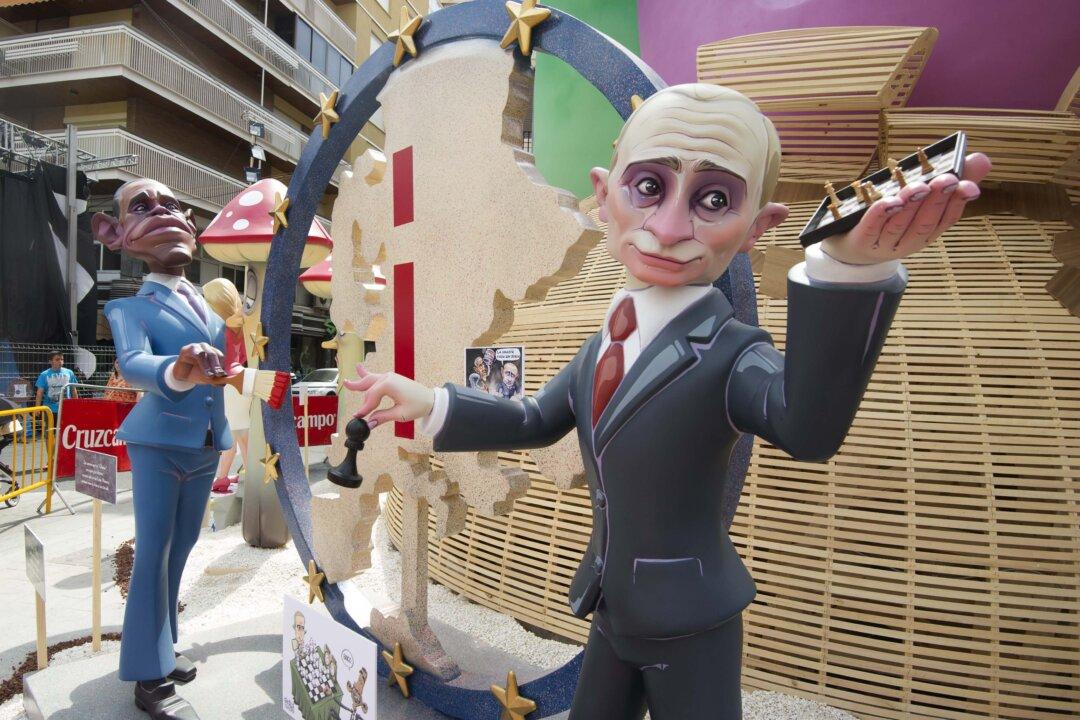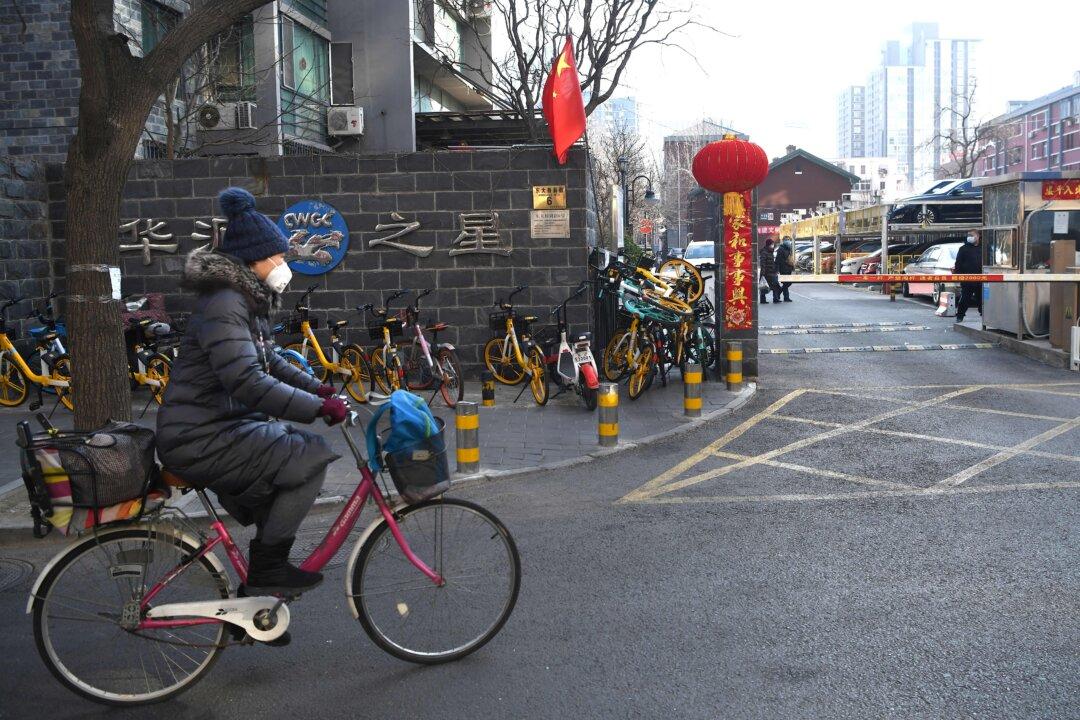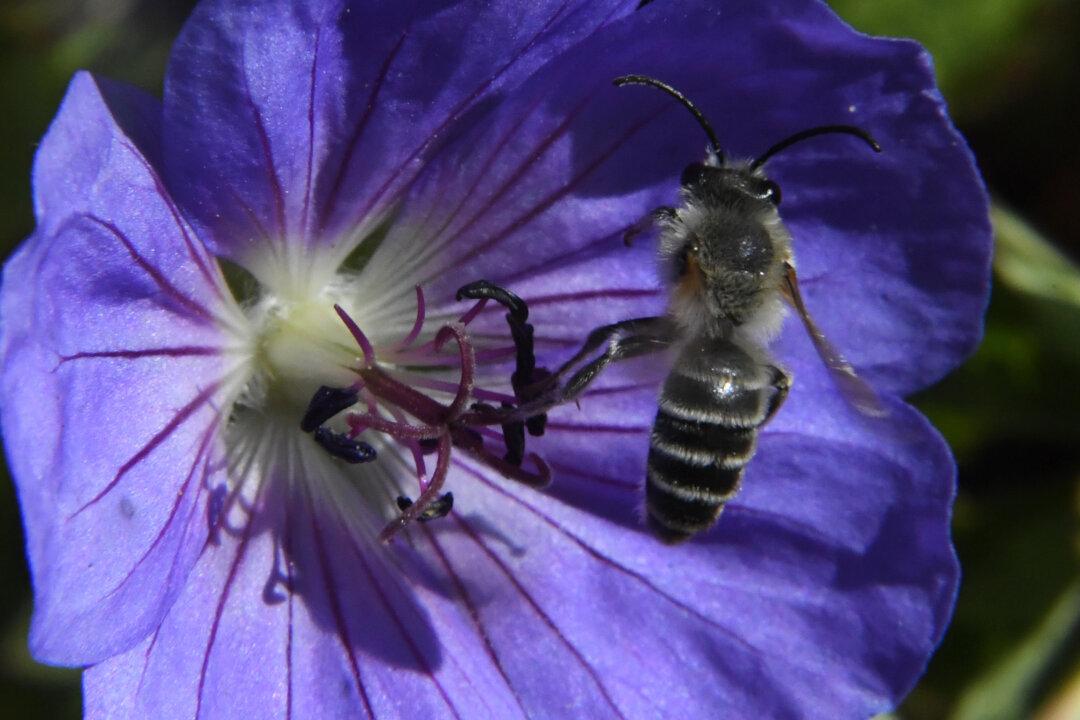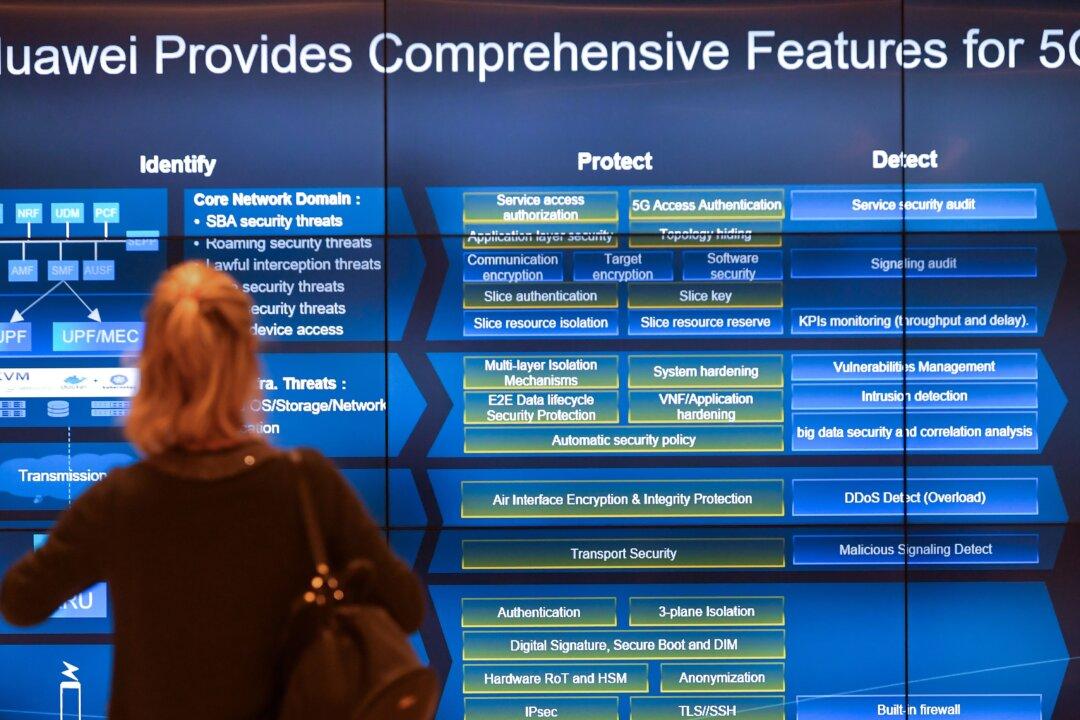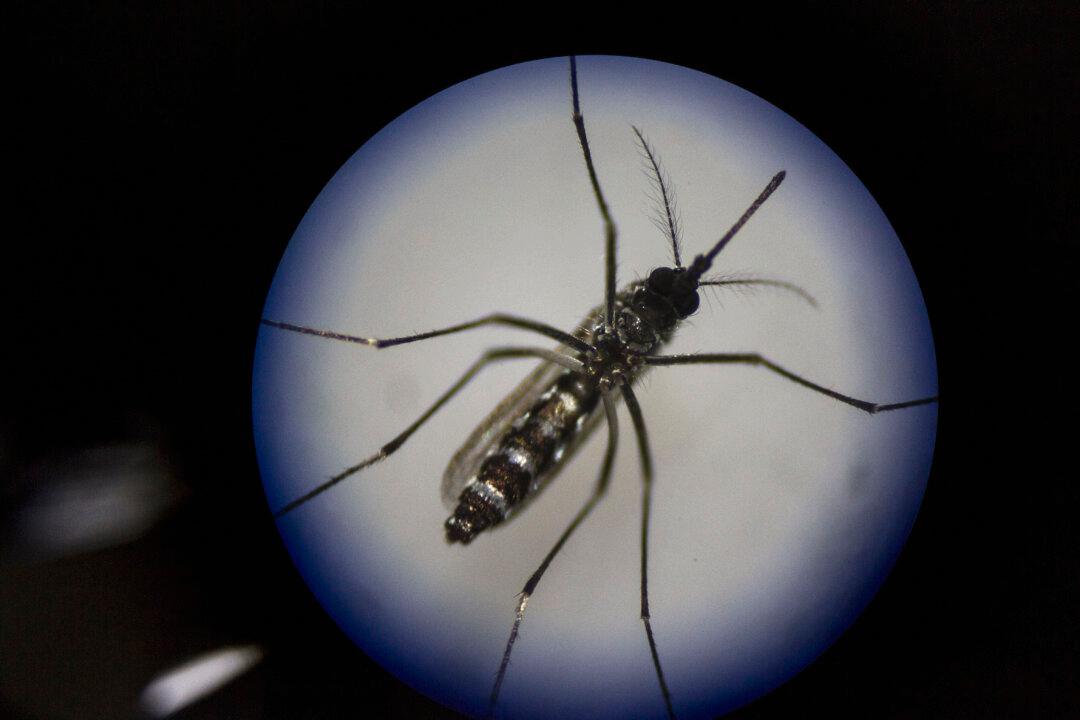The shot seen around the world has all the DNA of Vladimir Putin on it. From the target and technology, to the timing and tampering of evidence, Russian President Putin owns the downing of Malaysia Airlines Flight MH17. And he has done this before.
What the media has achieved in social engineering the evidence trail of Flight MH17 with video showing the movements of the Buk missile battery, it has failed to grasp the bigger picture: The timing of the missile strike.
Russia rolled the Buk surface-to-air missile system across the border into the rebel-occupied town of Snizhne on the day of the launch: July 17, 2014. It fired the missile and slinked the Buk battery back across the border.
All of that came a day after President Obama imposed new sanctions against Russia. So did Putin give the go ahead—a wink or a nod—for the missile attack in retaliation against those sanctions? In my view, yes.
“That’s speculative,” David Satter said in an overseas phone interview. But he didn’t dismiss it entirely. Expelled from Russia by the Putin government in 2013, he knows what Russia is capable of in acts of terrorism.
As one of the world’s leading experts on Russia’s “criminal state” post-Soviet Union, David Satter, author, former Moscow correspondent, and fellow at the Hudson Institute, told me no matter what the circumstances were in the attack the fault lies with President Putin.
“Putin owns this disaster by arming the rebels, for his power grab of Crimea and Eastern Ukraine,” Satter said. “All the bad news after the Russian invasion of Ukraine is his responsibility.”
What is also remarkable, many U.S. media outlets, such as the Huffington Post, parroted as their headline that there is “no evidence trail” pointing back to Putin.
The Huffington Post swallowed the bait, hook, line, and sinker, without doing any research to the contrary. The circumstantial evidence is crystal clear and it points to Putin. (Disclosure: I write a blog for the Huffington Post.])
The Buk Missile System
“I received an email from a Toronto aviation expert. He explained how the Buk air defense works,” David Satter said, explaining, “The battery is programmed to detect ‘friend’ or ‘foe’ aircraft in the country it’s stationed. The problem came when the Buk moved across the border into Ukraine, then all aircraft would be seen as foe. The rebels are a collection of degenerates shooting irresponsibly. They had shot down a cargo plane before trying to deliver supplies to Ukrainian troops that were boxed in near the border.”
I said, “Fine. But cargo planes don’t fly at the speed or altitude of a civilian aircraft.”
Satter read from notes: “A cargo plane flies at 21,000 feet at 400 kilometers per hour (250 mph)”—or well under the 33,000 feet of Malaysia Airlines MH17, and at half the speed.
With my point made, Satter said, “The operator should have made the distinction that identified Malaysia MH17 as a civilian plane.” But he was emphatic that missile strike of MH17 was a case of mistaken identity.
But was it an accident? Or was it a veiled message from Putin to Obama for the new sanctions imposed the day before?
Occam’s Razor Cuts Putin
For Putin, evidence is continuing to mount on the Malaysia Airlines tragedy. Add past Russian transgressions, similar in their diabolical nature, and they paint Putin as a terrorist. The parallels between MH17 air strike and past incidents reveal the darker side of Putin and his Kremlin underpinnings.
Prior to being “elected” prime minister of Russia in 2000, Vladimir Putin needed a well-timed domestic incident, an act of war, a “force majeure” to usher him into the seat of power. Seeing the break up of the former Soviet Union with its power dissipating, Putin cooked up the scheme KGB-style.
The Chechnya War of the mid-1990s served as that opportunity. What better way to stir populace angst than to foment fear that the Russian bogeyman had returned? In Russia’s case it would mean a second war with the Chechen separatists. The spark for that war needed cover, misdirection, and muddying of the facts.
On Sept. 4, 1999, former KGB agents—renamed the Federal Security Service (FSB) to mask their brutal past—loaded an apartment building with high-tech explosives in Ryazan, a city of 500,000 located southeast of Moscow. When the bombs exploded, they killed 300 people and injured hundreds of others. From that shockwave, Russia used the attack as a reason to invade Chechnya, labeling the separatists as terrorists. Putin, who resigned as the FSB chief right before the bombings, was voted into power the following year.
Evidence that Putin and the FSB were the fabricators, propaganda merchants, and the real terrorists behind the Ryazan bombings took a decade to surface. It would have come out sooner had FSB agents not poisoned one of their own in counterterrorist expert Viktor Litvinenko in London in 2004 with polonium-210, a rare radioactive element, 97 percent of it is found in Russia.
David Satter captured the evidence trail in his 2002 paper, “The Shadow of Ryazan: Who Was Behind the Strange Russian Apartment Bombings in September 1999?”
He wrote:
“Finally, Chechen terrorists would have needed technical virtuosity. In the case of the Moscow apartment buildings, the bombs were placed to destroy the weakest critical structural elements so each of the buildings would collapse ‘like a house of cards.’ Such careful calculations are the mark of skilled specialists, and the only places in Russia where such specialists were trained were the spetsnaz forces, military intelligence (GRU), and the FSB.”
It is fairy dust to believe the rebels had the “technical virtuosity” instilled in them overnight to have operated, located, aimed, and shot down the plane flying six miles up in the sky.
As the rebels continue to shoot down Ukrainian fighter jets, President Obama hits the campaign trail, either uninterested or impotent to meet the challenge of Putin head on.
On the European side, why wait for Obama to act or the churn of evidence to trickle in when all arrows point at Putin? Why wait, when the EU can hammer Russia’s act of terrorism with a new round of much stiffer sanctions that would punish Putin, making him both a pariah in his homeland and abroad, while crippling the Russian economy?
Such financial harm—painful in Europe at first—but coupled with international isolation, would spur the oligarchs and Russian people to revolt against the cancer of human rights in Putin.
James Grundvig lives and works in New York.
